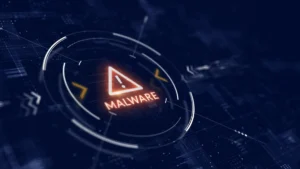
In today’s digital age, where our lives are intricately intertwined with technology, the importance of cybersecurity cannot be overstated. Cyber threats continue to evolve at an alarming pace, constantly challenging organizations and individuals alike. In this context, ethical hacking has emerged as a powerful tool in the battle against malicious hackers.
Ethical hacking, also known as penetration testing or white-hat hacking, involves authorized and responsible exploration of computer systems, networks, and software applications to identify vulnerabilities and strengthen security measures. This article delves into the world of ethical hacking, highlighting its significance, methodologies, and the ethical considerations that drive its practice.
Understanding Ethical Hacking
Ethical hacking is a proactive approach employed by organizations to simulate real-world cyber attacks and identify vulnerabilities before malicious actors can exploit them. Ethical hackers, also known as penetration testers, utilize a wide range of tools and techniques to assess the security posture of computer systems and networks. They adopt the mindset of a hacker, exploring every nook and cranny to expose weaknesses, which are then reported to the organization for remediation.
The Role of Ethical Hacking in Cybersecurity
In an era where data breaches and cyber attacks dominate headlines, ethical hacking plays a crucial role in safeguarding sensitive information and protecting critical infrastructure. By uncovering vulnerabilities and potential entry points, ethical hackers help organizations stay one step ahead of cybercriminals. Through comprehensive security assessments, they assist in the development of robust defense strategies, ensuring that potential weaknesses are identified and addressed proactively.
Ethical Hacking Methodologies
Ethical hacking follows a structured approach to maximize effectiveness while maintaining ethical boundaries. The methodologies commonly employed by ethical hackers include reconnaissance, scanning, gaining access, maintaining access, and covering tracks. These phases ensure a systematic examination of the target system, enabling the identification of vulnerabilities and potential points of exploitation. Throughout the process, ethical hackers adhere to strict legal and ethical guidelines to ensure responsible and authorized exploration.
Legal and Ethical Considerations
The practice of ethical hacking is governed by legal frameworks and ethical guidelines to ensure that the activity remains responsible and constructive. In most jurisdictions, ethical hackers are required to obtain explicit written permission from the target organization before commencing any penetration testing activities. Furthermore, they must adhere to strict rules of engagement, respecting the boundaries set by the organization and refraining from causing any harm or disruption. Trust, transparency, and responsible conduct are the cornerstones of ethical hacking.
The Skills and Mindset of an Ethical Hacker
To excel in ethical hacking, one must possess a diverse set of technical skills and cultivate a hacker mindset. Proficiency in programming languages, networking protocols, and operating systems is crucial. Additionally, a deep understanding of cybersecurity principles, knowledge of hacking techniques, and the ability to think creatively are essential. Ethical hackers must continuously update their knowledge and skills to keep pace with the rapidly evolving threat landscape.
The Future of Ethical Hacking
As technology advances and cyber threats become more sophisticated, the significance of ethical hacking will continue to grow. Organizations across industries will increasingly rely on ethical hackers to assess their security posture and protect their digital assets. Additionally, the integration of artificial intelligence and machine learning in ethical hacking tools will revolutionize the field, enabling faster and more accurate vulnerability identification.
Conclusion
Ethical hacking stands as a vital pillar in the realm of cybersecurity, serving as a proactive defense mechanism against malicious actors. By adopting a hacker’s mindset and employing advanced techniques, ethical hackers play a crucial role in safeguarding organizations and individuals from cyber threats.
However, it is essential to emphasize that ethical hacking must always adhere to legal and ethical guidelines to ensure responsible exploration. As technology evolves,ethical hacking will continue to evolve alongside it, making the digital landscape more secure for all.

